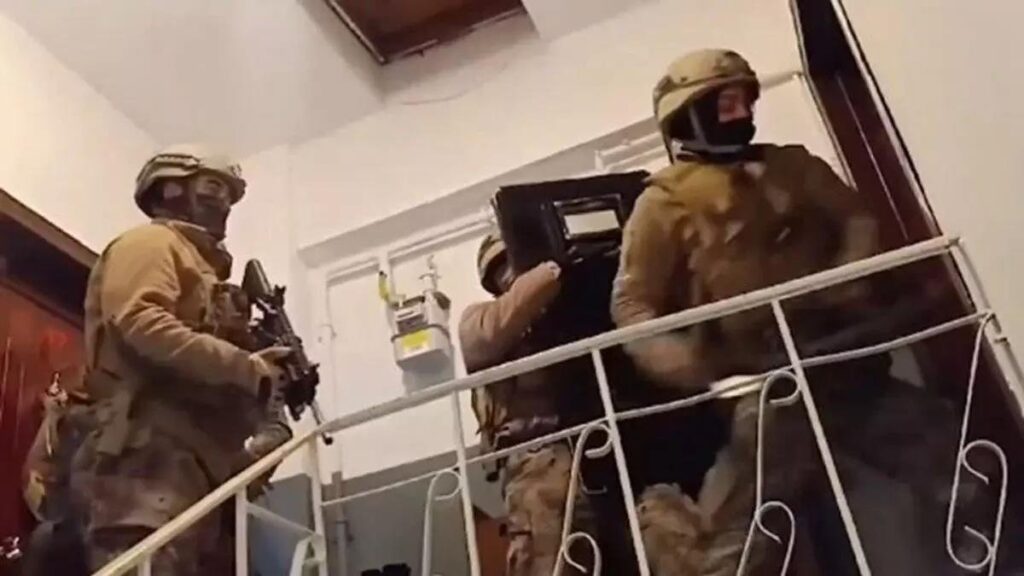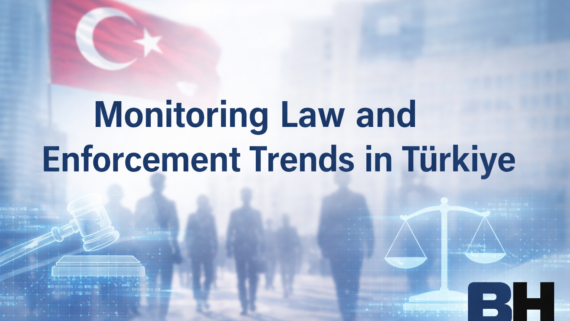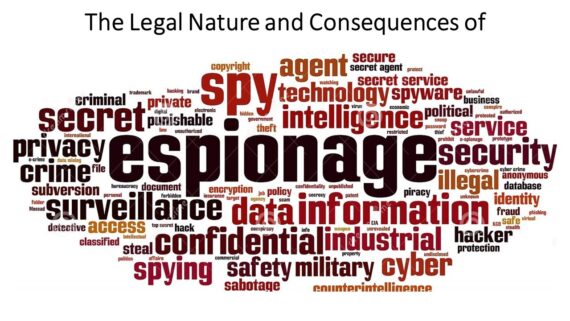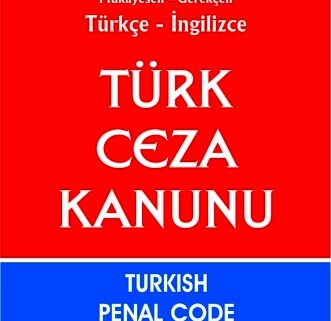We are often asked whether it is legal to hire a private investigator / detective in Turkey? In Türkiye, private detective services are not legally recognized or regulated. Despite public demand, engaging in or hiring such services often results in serious criminal consequences. Both unlicensed “detectives” and their clients have been detained, prosecuted, and even convicted for offenses such as unlawful surveillance, violation of privacy, illegal data collection, and blackmail. Courts consistently reject evidence obtained through these means as inadmissible, leaving clients exposed to legal, financial, and reputational harm. Only licensed attorneys are legally authorized to collect and present evidence in Türkiye. Individuals and businesses seeking investigative support must work through lawful channels – such as attorney-supervised evidence gathering and court-authorized discovery. Bıçak Law Firm provides clients with comprehensive, legally compliant solutions to sensitive personal and corporate issues – ensuring the protection of their rights without risking criminal liability.
Legal Trouble for Private Detectives and Their Clients
In Türkiye, the growing demand for private investigation services – particularly in cases involving marital infidelity, asset tracing, and corporate fraud – has given rise to a shadow industry of self-proclaimed private detectives. Promising discreet surveillance, intelligence gathering, and access to personal data, these individuals and agencies market their services aggressively through websites and social media platforms. However, what many clients and service providers fail to recognize is that such activities often cross the line into criminal conduct under Turkish law.
Unlike jurisdictions where private investigators are licensed and regulated, Türkiye has no legal framework recognizing or authorizing the private detective profession. As a result, many so-called “detectives” operate outside the law, engaging in practices that violate fundamental rights – such as unauthorized surveillance, illegal tracking, or unlawful access to personal data. These activities are not merely unethical or inadmissible in court; they are crimes that may result in detention, arrest, prosecution, and imprisonment.
Equally concerning is that the clients who hire these services are not immune. Under the Turkish Penal Code, a person who instigates or facilitates a criminal offense – such as the unlawful violation of privacy – is held criminally liable alongside the perpetrator. Numerous recent police operations across Türkiye have led to the apprehension of both unlicensed investigators and their clients. In several cases, clients were prosecuted for instructing detectives to spy on spouses, business partners, or rivals, often leading to charges of instigating privacy violations, defamation, or blackmail.
This article explores the real legal dangers associated with hiring or acting as a private detective in Türkiye. It outlines the applicable legal prohibitions, highlights high-profile police operations, and explains why evidence collected through such means is inadmissible in court. It also offers lawful alternatives and professional legal support to help clients achieve their objectives without risking criminal liability.
Legal Prohibitions under Turkish Law
Despite the growing public interest in private detective services in Türkiye, the legal framework offers no recognition or authorization for such a profession. Unlike licensed professions such as attorneys, notaries, or security officers, private detectives do not have a defined legal status or licensing body under Turkish law. Accordingly, most activities performed by individuals presenting themselves as private detectives fall outside the boundaries of lawful conduct and are subject to criminal sanctions.
No Legal Right to Investigate or Collect Evidence
Under Law No. 1136 on Attorneyship, only licensed attorneys (avukatlar) are legally authorized to collect and submit evidence in judicial and administrative proceedings. Attorneys can lawfully obtain information from public institutions, interview witnesses, commission expert reports, and submit legally obtained materials to courts.
Private detectives, on the other hand, have no legal authority to collect evidence. They cannot request official records, conduct interviews under legal privilege, or present findings in court. Any attempt to do so may result in legal action, particularly if the methods used infringe on privacy or data protection rights.
Common Criminal Offenses Involved in Detective Activities
Private detective activities often result in violations of the Turkish Penal Code (TCK) and Personal Data Protection Law (KVKK No. 6698). The most common offenses include:
🔹 TCK Article 134 – Violation of Privacy (Özel Hayatın Gizliliğini İhlal)
- Secretly photographing, recording, or monitoring a person without their consent.
- Surveillance of private homes, offices, or vehicles.
🔹 TCK Article 135 – Unlawful Recording of Personal Data
- Collecting information about a person’s private life, financial status, or health without consent.
🔹 TCK Article 136 – Disclosure or Transfer of Personal Data
- Sharing or selling the collected data to third parties or clients.
🔹 TCK Article 132 – Violation of Communication Confidentiality
- Listening to, recording, or intercepting private conversations, messages, or phone calls.
🔹 TCK Article 107 – Blackmail and Extortion
- Using unlawfully obtained information to threaten or pressure individuals for personal gain.
🔹 KVKK No. 6698 – Personal Data Protection Law
- Processing personal data without explicit consent or legal basis.
- Failure to comply with administrative obligations, such as registration with the Data Controllers Registry (VERBİS).
Legal Liability for Clients Who Hire Detectives
Clients who instruct private detectives to perform unlawful activities may be held criminally liable as instigators (azmettiren) or aiders and abettors (yardım eden) under:
- TCK Article 37 – Principal Offender Liability
- TCK Article 38 – Instigation
- TCK Article 39 – Aiding and Abetting
In practice, this means that a person who hires a detective to track a spouse, record a phone call, or collect someone’s private information may face the same criminal penalties as the person who commits the act.
Moreover, when information collected by detectives is used in legal proceedings, the court may:
- Reject the evidence outright,
- Initiate a criminal investigation against the client and the detective,
- Hold the client liable for damages in a civil lawsuit, especially if harm was caused to the subject of the investigation.
No Licensing, No Oversight, No Protection
Türkiye has no public body responsible for regulating or licensing private detectives. Draft laws proposed in 2011 and later years failed to pass due to concerns about privacy violations and the potential abuse of such a profession. As a result:
- Anyone can present themselves as a “private detective” without credentials.
- Clients have no guarantee of professional standards, confidentiality, or even delivery of services.
- Individuals and businesses who rely on such services do so at their own legal risk.
Real-Life Operations Targeting Detectives and Clients
In recent years, Turkish law enforcement agencies have launched multiple operations against individuals and groups offering illegal private detective services. These investigations have revealed that many such entities engage in criminal conduct including unlawful surveillance, blackmail, and data breaches. What is often overlooked, however, is that clients of these services are also prosecuted, especially when they instigate or benefit from the unlawful acts.
The following real-life operations demonstrate how both “detectives” and their clients have been detained, arrested, charged, and in some cases convicted under Turkish law.
Mossad Collaboration Case – İstanbul / 2025
In October 2025, the National Intelligence Organization (MİT), in coordination with Istanbul’s Chief Public Prosecutor and police forces, carried out operations targeting individuals alleged to be collaborating with the Israeli intelligence service Mossad. Among those detained was Serkan Çiçek, presented publicly as a private detective, accused of accepting surveillance assignments and cryptocurrency payments from an operative posing as a foreign law-firm staff member. Also arrested was lawyer Tuğrulhan Dip, alleged to have sold personal data drawn from public registries to detectives working for foreign intelligence. This case starkly illustrates how purported detective work can escalate into conduct resembling espionage or illicit data trafficking—activities carrying serious criminal charges under Turkish law.
“Dedektiflik Çetesi” Operation – İzmir, 2023
In a coordinated operation led by the İzmir Police Cybercrime Unit, authorities dismantled a criminal network operating under the guise of a private detective agency. The group offered services such as:
- GPS tracking of individuals without their knowledge,
- Surveillance of homes and workplaces,
- Collection and sale of private data obtained through digital intrusion.
A total of 23 individuals were detained, including former law enforcement personnel. Crucially, several clients who had commissioned surveillance and information gathering on spouses and business rivals were also questioned and later charged for instigating violations of privacy.
The investigation revealed that the group used hidden cameras, social media hacking, and vehicle tracking devices. Police seized laptops, surveillance equipment, and client records during the raid.
“Şantaj Amaçlı Dedektiflik” Case – İstanbul, 2022
A high-profile businessman filed a criminal complaint after being blackmailed with photos and personal information obtained through a so-called detective agency. The agency had been hired by a rival party to gather evidence of infidelity. Once the data was collected, the agency threatened to leak it unless a large sum of money was paid. Both the detective and the client were arrested and later convicted of:
This case drew national media attention and became a cautionary tale about the risks of hiring unregulated investigative services.
“Yasadışı Dinleme ve Takip Ağı” – Ankara, 2020
In Ankara, cybercrime police raided an unlicensed “intelligence consultancy” offering private investigation services to politicians, corporate executives, and suspicious spouses. The services included:
- Installation of spyware on mobile phones,
- Audio bugging of offices,
- Live GPS tracking of individuals’ movements.
Authorities found evidence of dozens of clients, some of whom were called to testify. Several clients were later charged with instigating unlawful surveillance and communication violations (TCK 132).
The investigators reported that many clients were unaware that their requests could lead to criminal prosecution, mistakenly believing they were hiring a lawful service.
“Online Dedektif Dolandırıcılığı” — Antalya, 2021
In this case, the danger was not legal exposure but fraud and identity theft. Several websites were found advertising detective services online. After taking payments for tasks like “infidelity tracking” or “missing person searches,” the operators disappeared without delivering any service. Dozens of victims filed criminal complaints, leading to the arrest of the website operators for:
- Qualified fraud (nitelikli dolandırıcılık)
- Impersonation of a public profession
- Unjust enrichment through illegal services
While not a privacy crime, this case illustrates that engaging with unverified detective services exposes clients to financial harm and reputational damage.
Common Themes from These Operations
From these real-life examples, the following patterns emerge:
- Many detective services cross into criminal conduct under Turkish law.
- Clients are not immune and are often prosecuted for aiding or instigating offenses.
- Evidence gathered through such means is almost always inadmissible in court.
- Both clients and service providers may face serious penalties, including imprisonment, fines, and public exposure.
Criminal Liability of Clients
A common misconception among those who hire private detectives in Türkiye is the belief that only the detective bears legal responsibility if things go wrong. However, under Turkish criminal law, individuals who instruct, encourage, or benefit from unlawful activities may be held equally responsible as the direct perpetrator. In practice, this means that clients who hire unlicensed detectives for illegal surveillance, data collection, or tracking can be prosecuted, fined, or even imprisoned for their involvement.
Legal Basis for Client Liability
Under the Turkish Penal Code, clients who hire private detectives may be prosecuted as:
- Instigators (Azmettiren) under Article 38 – A person who incites another to commit a crime is punished as if they had committed the act themselves.
- Aiders and Abettors (Yardım Eden) under Article 39 – A person who facilitates the commission of a crime (logistically or financially) may also be punished.
This legal doctrine has been applied in several investigations and prosecutions involving private detectives. For example, clients who provided payment, instructions, or targets for surveillance operations were charged with instigating privacy violations or unlawful data acquisition.
Typical Offenses Involving Clients
Clients may be held criminally liable for a range of offenses, including:
- Violation of privacy (TCK Art. 134): If they request surveillance, video recording, or home monitoring of a spouse, employee, or rival.
- Violation of communication confidentiality (TCK Art. 132): If they instruct someone to tap or record phone calls or messages.
- Unlawful collection or dissemination of personal data (TCK Art. 135–136): If they obtain or distribute private information without consent.
- Blackmail or extortion (TCK Art. 107): If they use obtained information to pressure or threaten another person.
- Personal Data Protection Law (KVKK No. 6698): If they process, store, or share personal data without consent or a legal basis.
Admissibility Consequences in Court
In addition to facing criminal charges, clients who attempt to use illegally obtained evidence in court may encounter several legal consequences:
- Evidence may be deemed inadmissible in both civil and criminal cases, undermining the client’s legal position.
- Courts may report the illegal activity to the public prosecutor for further investigation.
- The opposing party may initiate a counterclaim or criminal complaint for violation of rights.
For example, in divorce or custody proceedings, the use of secret audio recordings or surveillance footage obtained through illegal means has repeatedly been rejected by Turkish courts—regardless of whether the underlying allegation (e.g., infidelity) was true.
Civil and Reputational Consequences
Aside from criminal exposure, clients may also face:
- Compensation lawsuits for violating personal rights under the Turkish Civil Code (Articles 24–25).
- Damage to personal and professional reputation, especially if the matter becomes public through media or court proceedings.
- Loss of standing in ongoing litigation, where the client’s credibility or integrity is questioned due to the use of unlawful tactics.
Risk Profile of Typical Clients
Based on real-life operations, the following types of clients are at increased risk:
- Individuals attempting to catch a spouse in the act of infidelity.
- Business owners seeking to monitor employees or competitors.
- Estranged family members trying to locate heirs or missing persons without legal process.
- Foreign nationals unaware of Türkiye’s strict privacy laws, seeking private investigation services online.
These clients often act with the belief that their actions are morally justified or “harmless.” In reality, they are frequently surprised to learn they are subject to arrest or prosecution alongside the detective they hired.
Legal Warning!
The use of private detectives in Türkiye may appear to offer quick answers to sensitive problems – whether related to personal relationships, business disputes, or financial concerns. However, as this article has demonstrated, engaging in such activities outside the bounds of the law carries severe legal risks.
Türkiye does not recognize or regulate the profession of private detective. Individuals or agencies offering surveillance, information gathering, or tracking services without legal authority are frequently in violation of criminal law, particularly concerning privacy, data protection, and unlawful evidence collection. In many cases, both the “detectives” and the clients who hired them have faced serious consequences – including detention, prosecution, fines, and even prison sentences.
Moreover, the information obtained through these illegal means is almost always inadmissible in court. Rather than supporting a legal claim, it can backfire – damaging the client’s reputation, weakening their position in litigation, and triggering criminal or civil liability.
The clear legal message is this:
Hiring a private detective in Türkiye is not only legally ineffective – it may also be criminally punishable.
⚖️ Legal Guidance is Essential
If you believe you need investigative support, whether in a personal or commercial context, the correct course is to consult a licensed attorney. Attorneys in Türkiye are empowered to collect and present evidence lawfully, advise on risks, and engage experts or institutions under legal supervision.
Bıçak Law Firm provides strategic legal guidance to individuals and organizations who require information, evidence, or protection – without crossing legal boundaries. Our services include:
- Lawful evidence collection and litigation support,
- Digital risk and privacy protection,
- Due diligence and compliance investigations,
- Legal representation for clients accused of privacy violations,
- Prevention and resolution of disputes through lawful means.
Whether you’re facing a complex personal matter or a sensitive corporate issue, we are here to help you navigate it with integrity, legality, and confidence.
 English
English Türkçe
Türkçe Français
Français Deutsch
Deutsch










Comments
No comments yet.